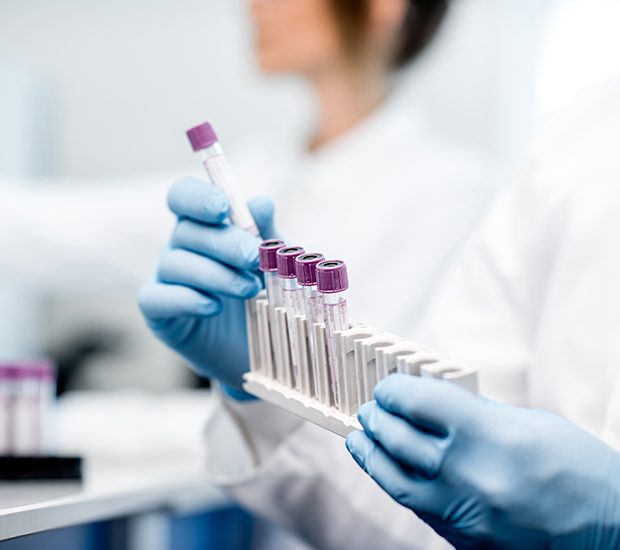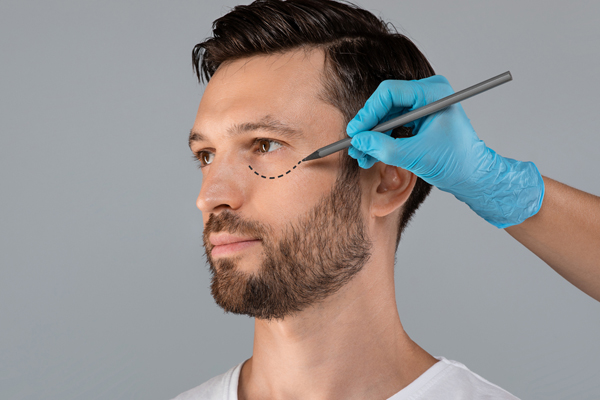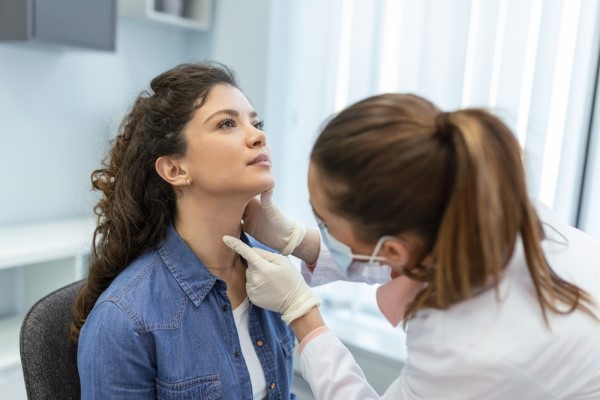General Lab WorkSeiling, OK
Getting a blood test can be a part of a regular physical checkup or in response to specific health concerns. Blood tests can help detect potential issues in time to get effective treatment. General lab work is an assortment of standard diagnostic tests.
General lab work is available at Janey L Hammons NP-C in Seiling and the surrounding area. Our doctors may order lab tests as needed; they may also work with other providers to ascertain the right diagnostic procedures for a particular situation. Test results can be key to identifying potential areas of concern to address them with optimal efficacy.
Seeing a healthcare provider for regular checkups and labs is essential to maintaining health. Our medical team is here to help patients with health concerns they may have. Call us at (580) 922-4406 to schedule a visit.
Tests Included in General Lab Work
In general, common blood tests show whether certain substances in the bloodstream are at a normal level. The presence or absence of certain substances can provide information as to whether organs such as the lungs and liver are functioning correctly. Labs can also show if medication is working as it should.
Urinalysis is one common lab test. The lab tests the urine sample to diagnose or monitor a variety of conditions. Testing usually consists of visual, chemical, and microscopic examination. Chemical tests check for a set of substances:
- Glucose: Results outside the normal range can indicate issues with sugar processing. They can point to the presence of conditions such as diabetes or prediabetes. Elevated glucose levels can also signal a problem with the kidneys.
- Bilirubin: This is a substance found in the liver. It is normally processed out of the body, so its presence in blood or urine can indicate liver damage. Urinalysis is one of the earliest ways to detect liver disease, as bilirubin can begin showing up before other symptoms appear.
- Protein: Concentrated amounts of protein in urine can mean a problem with kidney function. Other causes may be temporary, such as dehydration. They can also include heart conditions, lupus, Hodgkin’s lymphoma, and other serious issues.
Blood tests included in general lab work usually include a complete blood count. They may also include a thyroid panel, a metabolic panel, and tests for specific nutritional deficiencies. The CBC measures the various components of the blood, such as platelets, white blood cells, red blood cells, hemoglobin, and hematocrit. Results that fall outside the normal range can indicate various types of health problems. In the event of such a result, doctors typically order further, more targeted testing to make a diagnosis.
Other Common Lab Tests
In addition to general lab work, a doctor may order several standard tests. Some reasons for additional testing may include risk factors for particular conditions, specific symptoms, or concerning results from previous labs. Pregnant women routinely undergo a range of blood tests, including one for gestational diabetes. For example, someone with cholesterol concerns may need to have a lipoprotein panel, which assesses the levels of both types of cholesterol.
Reasons Patients May Need General Lab Work
Physicians often order lab work for patients in the course of a routine physical. According to the National Heart, Lung, and Blood Institute, lab tests are among the top tools for early detection and prevention of a wide range of conditions. Blood and urine analysis can reveal danger signs before a patient begins to experience symptoms. For conditions such as pre-diabetes or high cholesterol, detection at this early stage can mean a greater chance of controlling or eliminating it with noninvasive measures.
Patients may also need lab work if they present with a set of symptoms. In such a situation, the doctor may want to confirm a diagnosis or rule out possible causes of the symptoms. A patient may need general lab work or specific tests.
How To Prepare for Getting General Lab Work
The type of preparation needed depends on the kind of test. Generally, patients do not need to prepare for urinalysis. Some blood tests may need to be preceded by a period of fasting. This is especially common for tests to measure blood sugar. The doctor will provide specific instructions based on the type of test. It is essential to follow the doctor's instructions, as doing otherwise could affect the results.
Talk to a Doctor
General lab work is an important part of maintaining good health. Whether you are due for a physical or, have some symptoms that concern you, seeing a healthcare provider is the first step towards getting the health information you need. Call us at (580) 922-4406 to make an appointment.
FAQs About General Lab Work
What does it mean when my doctor tells me to fast before getting general lab work?
Fasting usually means eating nothing and drinking only water. A few rare tests may require patients to abstain from drinking for an hour prior. However, it is often a good idea to hydrate well and continue taking one's regular medication unless otherwise advised. WebMD also advises patients to avoid chewing gum, smoking, or exercising before a fasting blood test.
Is it normal to have bruising after having blood drawn for standard lab tests?
When drawing blood from the vein, it is normal to have a small amount of bruising at the site afterward. Pressing down on the site immediately after the needle is withdrawn can minimize swelling and bruising. Bruising typically goes away after a few days.
How long does it take to get general lab work results back?
This depends on the processes of the lab as well as on the type of test. A typical time range might be between one and two weeks. In many cases, the provider will contact the patient when the results come in.
Should I worry if the results of standard lab tests are slightly outside of the normal range?
Patients who do not suffer from any conditions and are not experiencing symptoms may not need further diagnostics if a test result is slightly out of range. A doctor may only recommend keeping an eye out for potential symptoms. On the other hand, someone with specific conditions or risk factors may benefit from further diagnostics.
What should I do if I am nervous about drawing blood?
It is common for people to feel nervous about having blood drawn for lab work. Some prefer to look away or find a distraction. Letting the phlebotomist know about any feelings of unease can also help, as they are often experienced with nervous patients, and know how to set them at ease.





